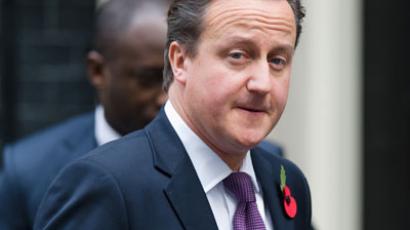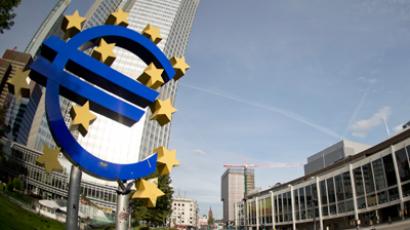No agreement on EU budget will lead to 'much deeper recession'

European leaders are not likely to compromise on a budget this year causing more turbulence in the global economy, experts warn.
Two days of talks saw European leaders in a deadlock over the EU's 2014-2020 budget. A decision could come towards the second quarter of the next year, Chris Weafer, chief strategist at Uralsib bank warns, and economies across the world would feel the negative impact. “Now the Eurozone is in a relatively mild recession. If we didn’t get agreement on the budget and we were to go all the way, then you are looking at several percentage points further into recession in Europe during 2013. And that’s of course there will be a contagion, and not the least of which will hit commodity producers such as Russia,” Chris Weafer told RT.If the battle runs into next year it might coincide with February discussions over the US budget in Congress. Chris Weafer believes it will boost uncertainty.“There has been a lot of focus on the so-called ‘fiscal cliff’ towards the end of the year, but come early February and the White House is going to have to submit its budget to the congress and that is going to open the whole new world of pain in terms of disagreements and argument between the two branches of government,” he says. “So we are going to be looking at this parallel in Europe and the US about budget uncertainty, a lot of uncertainty about where both economies are going. And there is no doubt emerging markets countries like Russia will definitely be in for collateral damage.” The draft budget–officially called the Multi-Annual Financial Framework – (MFF) was proposed by European Council President Herman Van Rompuy, who tailored the European Commission's original plan in order to find a compromise for both richer and poorer nations.Net recipient countries, including Poland, Portugal, Bulgaria, Czech Republic, Estonia, Greece, Hungary, Latvia, Lithuania, Malta, Romania, Slovakia, Slovenia and most recently Spain want spending maintained at the current level or even raised. Meanwhile, eight of the so-called contributor nations including Austria, Britain, Denmark, France, Finland, Germany, Netherlands and Sweden are calling for further spending cuts, while the UK took the toughest stance as the Prime Minister David Cameron had insisted he will veto any increase in the EU budget. Chris Weafer believes the period of budget planning for the EU may be eventually changed too. “Seven-year budget doesn’t make sense anywhere. 7 years out simply you don’t know what conditions you will have to deal with. So I think that is an area that certainly is going to change. We believe that they will move to one-year budgeting with 2-3 year targeting,” Weafer says.Any of the 27 countries can veto the budget, and the European Parliament will also have to vote on the union’s spending plan even if a deal is reached.














